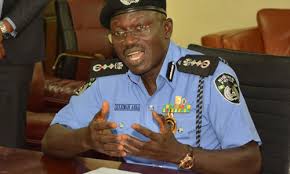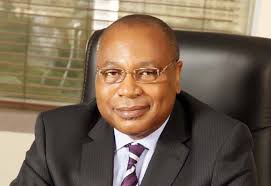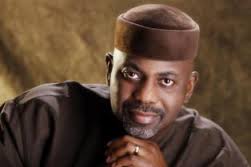The Nigeria Police ordered restrictions on movement on election day this weekend, as the country goes to the polls to choose a new president and parliament.
The Inspector General of Police, Suileman Abba, announced Tuesday that voters who cast their votes should go home to relax and wait the results, which incidentally counters the instruction of the Independent National Electoral Commission that voters should wait to hear the results announced publicly before leaving the polling centres.
Police said there would be a “total restriction” of vehicles between 8 am (0700 GMT), when polling stations open, and 5 pm.
Ambulances, fire service trucks and others on “essential duties” would be exempt, the Inspector General of Police, Suleiman Abba, said in a statement.
Travel restrictions are routinely put in place for elections in Nigeria, where politically-linked violence by roaming gangs of hired thugs has been common.
Abba said the measures were designed to “ensure adequate security” in Saturday’s vote, in which President Goodluck Jonathan is hoping to win a second term of office.
Identical restrictions will be put in place on April 11 for gubernatorial and state assembly polls, he added.
Security has been a major concern for the general election, with Nigeria’s electoral commission forced to postpone a vote scheduled for February 14 because of the deadly Boko Haram insurgency.
The decision was made after the country’s national security advisor said soldiers deployed on operations to fight the Islamist militants would be unable to provide security if required.
Claimed military successes against the Islamist rebels over the last month have raised fears that they will revert to suicide attacks and bombings, including at polling stations.
“Adequate security logistics and manpower have been strategically deployed to achieve a most conducive electioneering atmosphere,” Abba said.
“Policemen for election duty have been properly trained, briefed and sensitised on their roles,” he added.
The opposition positions of both Polie and INEC was underscored in Abuja Tuesday during the INEC national stakeholders summit on the 2015 general elections, where Jega unveiled the commission’s process and procedures for the elections and also launch INEC official app “myINEC”.
Jega on his part had stated that “at the end of sorting and counting of ballot papers, the results are to be announced to the hearing of all.”
This obviously contradicts the police boss stand.
The Inspector General of Police who noted that he was only advising the electorates and the politicians to stay away after they might have conducted their polls, explained that waiting behind could contravene the electoral Act, especially the one that bothers on loitering.
Mr. Abba who relied on section 129 of the electoral act which listed some of the acts which could resulted into electoral offence. Section 129(1) is listed amongst other “loiter without lawful excuse after voting or after being refusal to vote” as some of the actions which could resort to electoral offences.
He however assured the people that the police will be civil in its dealings with the general public.
He insisted despite the huge uproar that greeted his statement, “I advised, cast your vote and go home and relax.”
Abba who also reacted to the question raised by the All Progressive Congress (APC) representative, Senator Olorunibe Mamora, Deputy Director General General Muhammed Buhari Campaign Organization if waiting behind to protect votes constitutes loitering, said there will be time to distinguish protection of votes and loitering.
He also added that waiting behind under the provision of lawful purpose expires immediate one finishes with the business of casting one’s vote.
He further explained that the law made provision for those who are to wait to protect the law. He added, “there are lawful people assigned to protect your vote.”
While noting that the advice also affect the candidates who are standing for elections, Abba also urged them to exercise high sense of reasoning in educating their followers on peaceful conduct during and after the elections.
On the deployment of soldiers for the elections, the police boss noted that the military will be deployed to play the supportive role as stated in the constitution.
Though he noted that he was yet to see the High Court Judgment on the issue, he however said the military will be deployed to provide the needed cover about 300 miles from the polling units.
Jega had also used the opportunity to reassured Nigerians and stakeholders that the commission “has done its best to prepare adequate for the 2015 general elections, so as to make them better than the 2011 elections, and so as to ensure that they meet the aspiration of Nigerians for free, fair and credible elections.
“Let me also reassure that INEC and all its field officials are determined to be in partial and non-partisan in the conduct of these elections. We will continue to do everything humanly possible to ensure a level playing field for all parties and candidates. And we call on all stakeholders, especially voters, candidates and their supporters, to contribute positively to ensuring that the elections are fraud-free, peaceful, as well as free, fair and credible.
“It is also significant to note, that INEC has put plans in place to improve the transparency and credibility of the process of collation of results.”
He also added that “hard copies of result sheets from polling units would be scanned, converted to PDF format and put in database, which would be made accessible for viewing and downloading via the INEC website. Every voter or stakeholder will, hence be able to confirm the accuracy of results from the PUs, which have been conveyed to the collation centres.
According to Jega, three ballot boxes will be used in each polling unit/voting point. The box with red cover/lid will be used for presidential election, box with black cover/lid will be used for the senatorial election, while box with green cover/lid will be used for the House of Representatives election.
INEC boss who also insisted on the use of the card readers in this Saturday election, said the commission was satisfied 100% on the security and accuracy of the technology, especially as it has proven to be very reliable.














